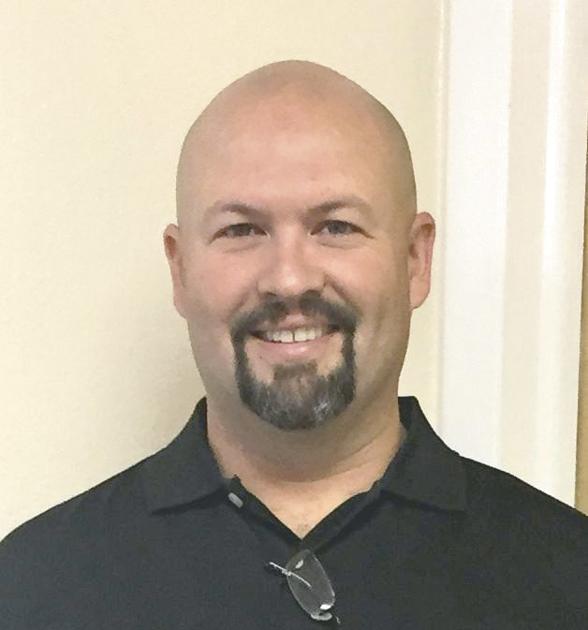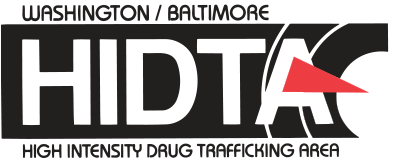Nonviolent Offenders with Substance Use Disorders Find Freedom at Berkeley Day Report Center
“Addicts desperately want to be free from the slavery of addiction; they just do not know how. They need help,” said Timothy Czaja, Director of Berkeley Day Report Center. The Berkeley Day Report Center (BDRC) located in Berkeley County, WV, treats nonviolent offenders with substance use disorders. BDRC is a recipient of Washington/Baltimore HIDTA (W/B HIDTA) grant funds.

As an alternative to incarceration, individuals are required to report to the Center in accordance with their parole or probation terms. Program participants are subject to random weekly drug and alcohol screening. If they do well and complete the program, there is the potential for charges to be dropped.
In 2019, BDRC treated approximately 150 people and saved local taxpayers 2.5 million dollars. The real story of success, however, is not in the money saved, but the impact the program makes on its participants.
The process begins when an individual is referred to the program by the court. Program participants are usually required to start their recovery process with an inpatient detox program and/or generalized hospital inpatient treatment for 30 to 45 days. The outpatient treatment time through BDRC is then a minimum of twelve months. Case managers assess each participant, and create an individualized treatment plan. Czaja says the program has started to gain more support from the community, as they learn that “incarceration for this population doesn’t work and is more costly.”
The BDRC treatment program happens in three stages. In the intensive outpatient stage, participants receive three hours of group therapy a day, three days a week with one hour a week of individual therapy facilitated by a masters-level clinician. Program participants also receive one hour a week of peer recovery coaching. In the outpatient treatment stage, the participants have one to three hours of group activities, two to three days a week. Group services include career development, parenting skills, criminal and addictive thinking, recovery skills, life skills, cognitive-behavioral health interventions, and drug and alcohol education. In the third and last treatment stage, program participants work closely with peer recovery coaches to make a plan for their next steps after finishing treatment, including finding employment.
BDRC provides a high level of support to ensure participants’ successes. For those without vehicles, BDRC offers transportation. The BDRC often will employ program graduates who have shown a high level of responsibility and commitment to recovery. One former participant, James Carter, came a long way from his first day at BDRC to now being employed as a driver. “When I first got here,” Carter said, “I was mean to people because I didn’t want to be here. I sat down and realized it was my fault I got here. The second day I sat down and listened to the counselors and they pointed me in the right direction.” After his time with BDRC, Carter went on to work at a local grocery where he became employee of the month, then employee of the year before being invited to work at BDRC.
Carter attributes his success to the guidance of his counselor. “She made me feel that I can really go out there and make a name for myself,” Carter said. His journey wasn’t without struggles. “I was doing wrong,” Carter said of the time before he came to BDRC, “I lost my job, I lost my license, the money I had saved I went through it like nothing. That’s what made me go to selling drugs. When I got popped that’s when my life turned way better than what it was doing.” Now, he says new participants open up to him because he used to be where they are. He helps them enter the program with a good attitude. “I love this job. I come in with a smile and leave with a smile,” he said of working at BDRC.
BDRC started in 2016 with just six participants and has since grown to 200 participants in just four years under the guidance of Program Director Timothy Czaja. Czaja felt called to work in the substance use disorder field after experiencing addiction and recovery himself. “It’s my joy to watch people who are enslaved to substances find freedom. It’s what I’m called to do,” said Czaja. Czaja is the FY 2020 recipient of the Judge Martin Gaughan Award for Outstanding Day Report Centers.
Czaja shared that the W/B HIDTA is BDRC’s biggest supporter, both monetarily and through its relationships. “It’s amazing to me that a federal funding initiative tends to their programs the way HIDTA does. We probably would not quite be where we are today,” Czaja said of the W/B HIDTA’s support. The ultimate goal of Berkeley Day Report Center is to help those with substance use disorders enjoy life again and heal their brains. Czaja said, “We don’t want them to hit rock bottom. We want to raise their rock bottom from what it could have been.”
BDRC provides those with substance use disorders the tools they need to find freedom from addiction. We’re proud to support their efforts.
View the Berkeley Day Report Center online here. To learn more about the Washington/Baltimore HIDTA’s treatment initiatives, visit https://www.hidta.org/initiatives/treatment/.
